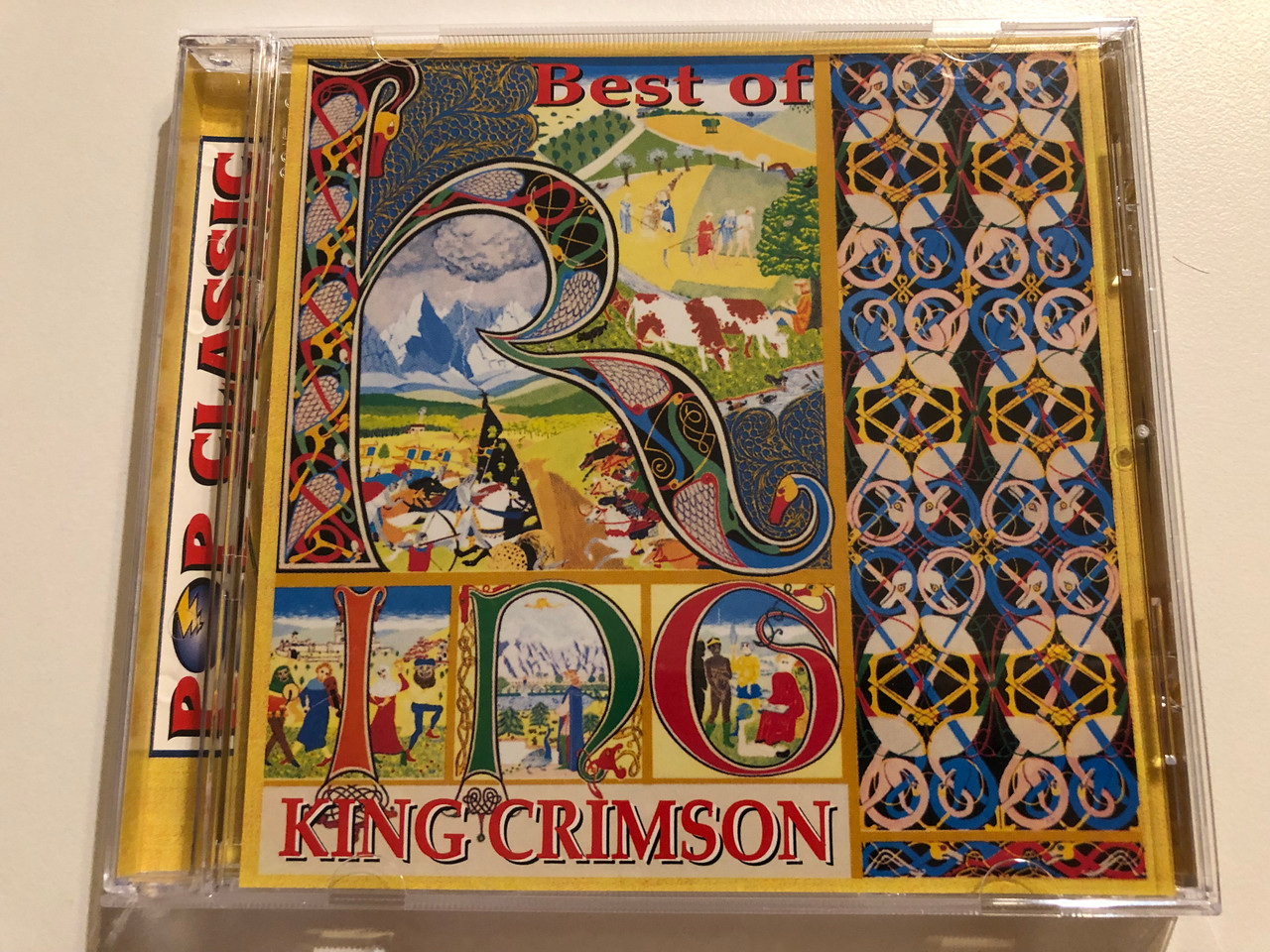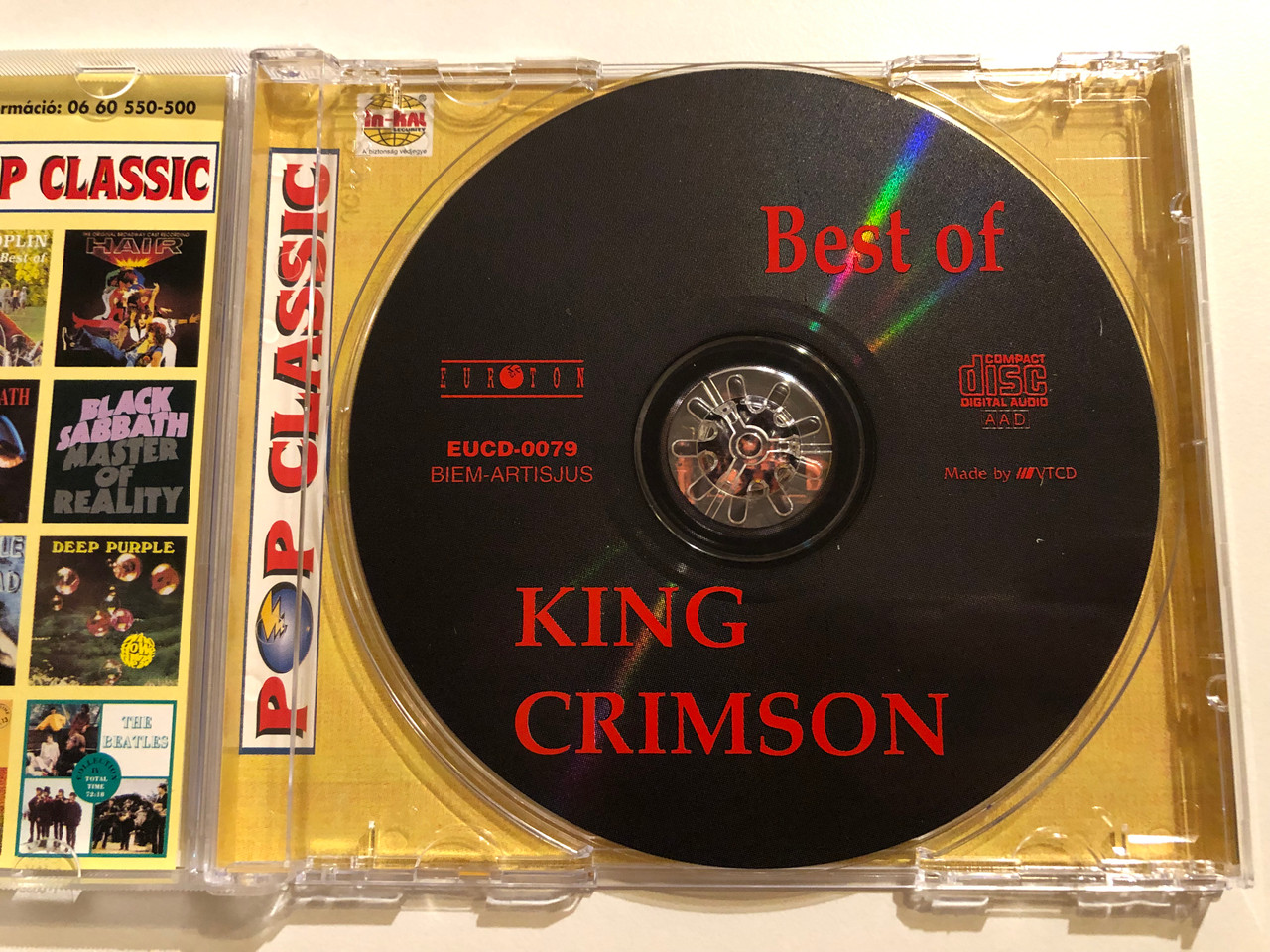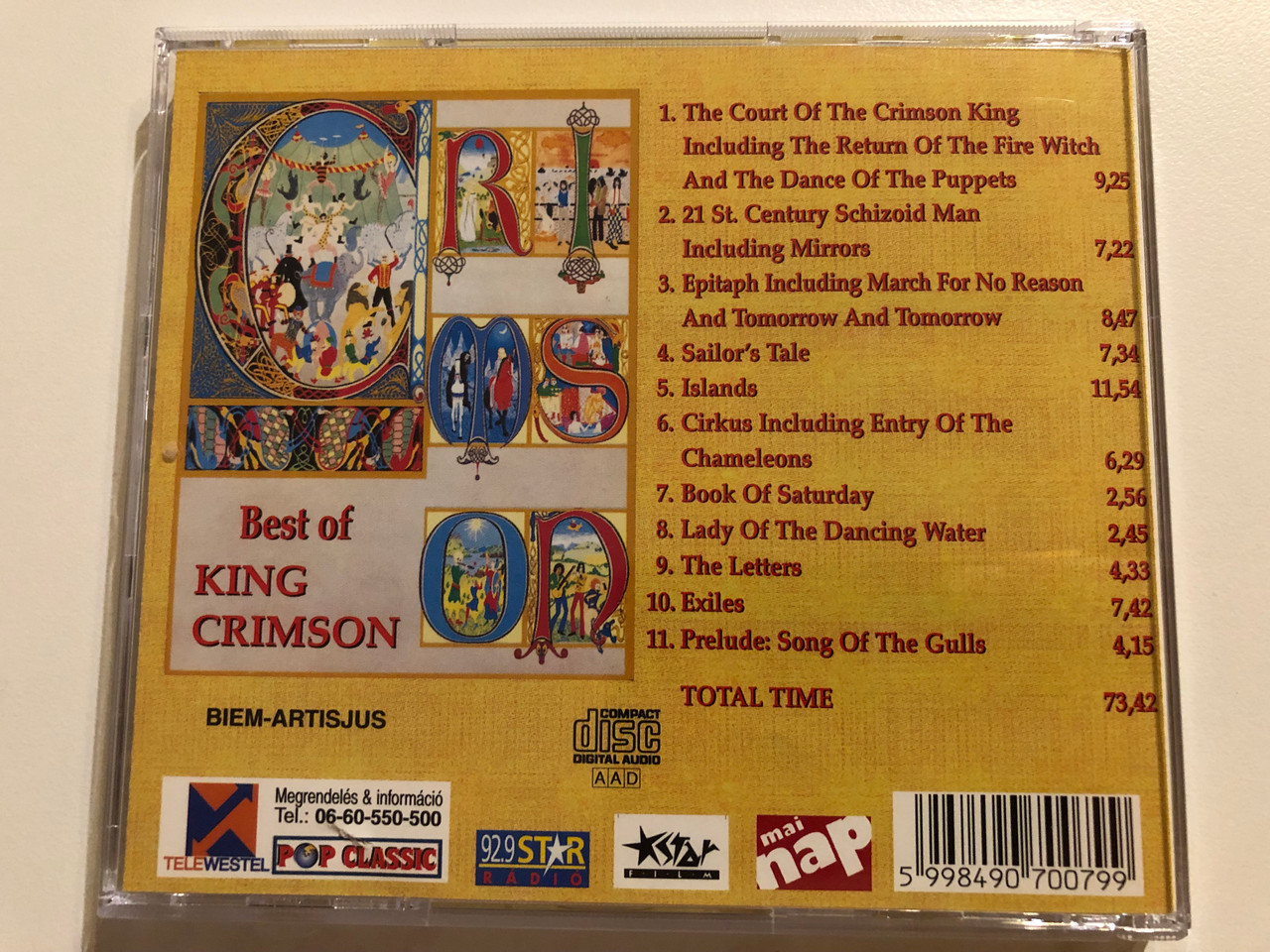Description
Best Of King Crimson / Pop Classic / Euroton Audio CD / EUCD-0079
UPC 5998490700799
Made in Hungary
Total Playtime 73:42
!!! Condition of this CD is USED VERY GOOD !!!
| Label: | Euroton – EUCD-0079 |
|---|---|
| Format: |
CD, Compilation
|
| Country: | Hungary |
| |
|
| Genre: | Rock |
| Style: | Prog Rock |
Tracklist:
| 1 | The Court Of The Crimson King Including The Return Of The Fire Witch And The Dance Of The Puppets |
9:25 | |
| 2 | 21 St. Century Schizoid Man Including Mirrors | 7:22 | |
| 3 | Epitah Including March For No Reason And Tomorrow And Tomorrow | 8:47 | |
| 4 | Sailor's Tale | 7:34 | |
| 5 | Islands | 11:54 | |
| 6 | Cirkus Including Entry Of The Chameleons | 6:29 | |
| 7 | Book Of Saturday | 2:56 | |
| 8 | Lady Of The Dancing Water | 2:45 | |
| 9 | The Letters | 4:33 | |
| 10 | Exiles | 7:42 | |
| 11 | Prelude: Song Of The Gulls | 4:15 |
King Crimson are a progressive rock band formed in 1968 in London, England. The band draws inspiration from a wide variety of music, incorporating elements of classical, jazz, folk, heavy metal, gamelan, industrial, electronic, experimental music and new wave. They exerted a strong influence on the early 1970s progressive rock movement, including on contemporaries such as Yes and Genesis, and continue to inspire subsequent generations of artists across multiple genres. The band has earned a large cult following.
Founded by Robert Fripp, Michael Giles, Greg Lake, Ian McDonald and lyricist Peter Sinfield, the band initially focused on a dramatic sound layered with Mellotron, McDonald's saxophone and flute, and Lake's powerful lead vocals. Their debut album, In the Court of the Crimson King (1969), remains their most commercially successful and influential release, with a potent mixture of jazz, classical and experimental music. Following the sudden simultaneous departures of McDonald and Giles, with Lake also leaving very shortly afterwards, Fripp and Sinfield assumed direction of the group for In the Wake of Poseidon (1970), Lizard (1970), and Islands (1971) with Mel Collins, Boz Burrell and Ian Wallace among the band members during this period. In 1972, Fripp changed the group's instrumentation and approach, drawing from European free improvisation, and developing ever more complex compositions. With Bill Bruford, John Wetton, David Cross and, briefly, Jamie Muir, they reached what some saw as a creative peak on Larks' Tongues in Aspic (1973), Starless and Bible Black (1974), and Red (1974). Fripp disbanded this group in 1974.
In 1981, Fripp and Bruford reformed King Crimson with another change in musical direction. The new group also included Adrian Belew and Tony Levin. They drew influence from African music, gamelan, post-punk and New York minimalism. This group lasted three years, resulting in the trio of albums Discipline (1981), Beat (1982) and Three of a Perfect Pair (1984). Following a decade-long hiatus, Fripp revived the group as a sextet he called the "double trio" in 1994 adding Pat Mastelotto and Trey Gunn. This group participated in another three-year cycle of activity that included the release of Thrak (1995), and multiple concert recordings. There was a hiatus between 1997 to 2000. Four members of the previous sextet reunited in 2000 as a more industrial-oriented King Crimson, called the "double duo", releasing The Construkction of Light (2000) and The Power to Believe (2003). After a five year hiatus, the group expanded (in the person of new second drummer Gavin Harrison) for a 2008 tour celebrating the 40th anniversary of their 1968 formation.
Following another hiatus (2009–2012), during which Fripp was thought to be retired, King Crimson came together again in 2013; this time as a septet (and, later, octet) with an unusual three-drumkit frontline, and new second guitarist and singer Jakko Jakszyk. This version of King Crimson continued to tour from 2014 to 2021, and released multiple live albums, rearranging and reinterpreting music from across the band's entire 50-year career for the first time.




























